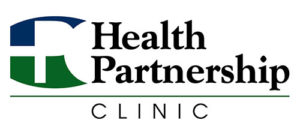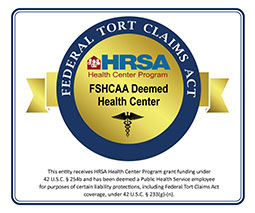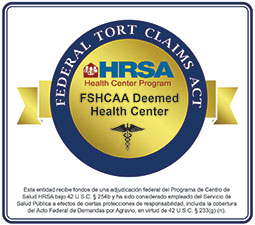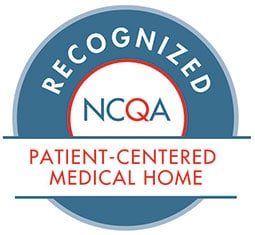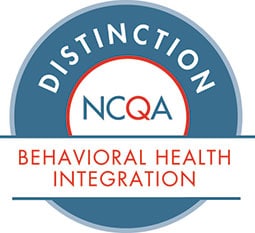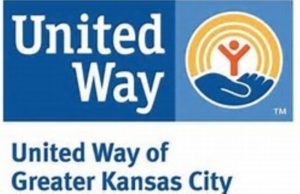Meet Stephanie
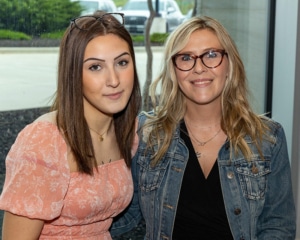 Stephanie Novello is a 37-year-old recovering addict. She has been in recovery since August 2020. She is a mother of three, ranging from 20 to seven years old, lives in Paola, Kan. and is a business owner. Today the future looks bright but a couple of years ago she was facing prison and an uncertain future.
Stephanie Novello is a 37-year-old recovering addict. She has been in recovery since August 2020. She is a mother of three, ranging from 20 to seven years old, lives in Paola, Kan. and is a business owner. Today the future looks bright but a couple of years ago she was facing prison and an uncertain future.
“I was born and raised in Olathe and my life growing up wasn’t the best,” she shares. “My mother was an addict, the dad I thought was my father turned out not to be and my biological father didn’t want anything to do with me, and we lived on government assistance and at times were uninsured.”
Stephanie helped raise her brother and sister in the midst of constant mental, emotional and physical abuse. “My siblings and I never experienced safe, stable nurturing relationships and environments, and there were no support systems–addiction was prevalent in our family.”
“I was forced to grow up and never got to enjoy a childhood you read about or see on TV. There were no bedtime stories, birthday celebrations or positive affirmations. Many times, we had no food.” She ended up in foster care for a few years, and her mom’s rights were eventually taken away. At 15, Stephanie discovered she was pregnant and dropped out of high school. She was totally alone without any support from the baby’s father and very vulnerable.
That vulnerability led Stephanie to someone who abused her both physically and emotionally for the next six years. “To cope and take away the emotional, mental and physical pain, I began to drink,” she reflects. “I got a DUI at the age of 20 and that was a wakeup call for me.”
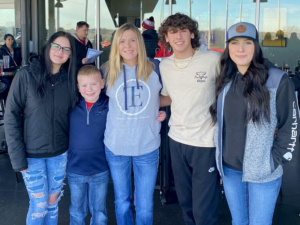 Now with two children, Stephanie decided to stop drinking and her sobriety lasted for 14 years. She didn’t want her children to go through what she experienced as a child.
Now with two children, Stephanie decided to stop drinking and her sobriety lasted for 14 years. She didn’t want her children to go through what she experienced as a child.
Just six months later after leaving that abusive relationship Stephanie jumped into another one. This time the relationship was healthier. She was together with her partner, Jesse, for 11 years.
“Unfortunately, because of my unhealed trauma I self-sabotaged that relationship with poor decision making and substance use,” she says. “There were a lot of things I should have done differently, and I should have dealt with my depression and self-doubt. Instead, I chose to stuff it all down deep inside.”
In 2019, she became addicted to meth and alcohol. “I became the person I promised myself I would never become,” she adds.
Stephanie received a second DUI. “I never thought of myself as an alcoholic. I drank socially and was fine. But then that turned into every weekend and then almost every day. But that wasn’t enough to feed my craving and I started using methamphetamine.”
She experienced addiction symptoms such as a decrease in appetite, an increase in risky behaviors, insomnia, mood swings and tooth decay. Meth is one of the most dangerous and addictive drugs around.
“I lost my relationship with my children and Jesse, lost my home, my car and myself,” she reflects. “At one point I was homeless. The drugs ran my life… with the depression, the hurt and the anger I self-medicated with drugs.”
She recounts, “I blamed everyone but myself. I hated life, I cried a lot and I wanted to stop. I missed my kids so much, but it wasn’t enough to stop. I stole from people. I lived in my car, and I even lived in a tent. The mom I once loved being was gone. I became someone I didn’t know at all. I was so angry with myself.”
Although her children tried to get their mom into rehab, the drugs were too powerful, and she says that nothing mattered except her next high. Luckily, Stephanie’s children were never put into foster care since her former partner stepped in.
The Turning Point
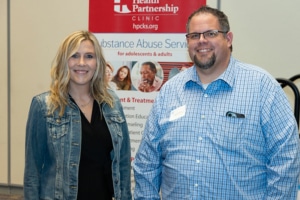 The COVID-19 Pandemic lockdown started in March 2020. On August 24, 2020, Stephanie got arrested for possession of meth and little did she know, it was the beginning of her road to recovery!
The COVID-19 Pandemic lockdown started in March 2020. On August 24, 2020, Stephanie got arrested for possession of meth and little did she know, it was the beginning of her road to recovery!
“In jail, I prayed a lot, and I broke down many times,” she says. “I asked God to take away the pain and help me to be the person I was before the drugs. I realized I was powerless in my life, I wanted change.”
“My children visited me in jail for the first time in four months,” she recalls. “That visit was so hard on them especially my youngest, who was just five years old. He didn’t understand why I was there, why he couldn’t hug me, and why I couldn’t go home with him. I was completely broken. It hurt knowing how much I hurt my children. I knew at that moment I wanted to be a better person for them and for myself, so I chose to fight.”
While in jail, she read books on recovery and spent time thinking about how she wanted her life to change. Stephanie was eventually bonded out of jail. Still facing a year in prison, she decided to work on her recovery and mending her relationships with her children. “I knew I didn’t want to ever go back to the life I was living,” she says.
Although many businesses were closed during COVID, there were two lifelines which remained open during the pandemic–Heartland Regional Alcohol and Drug Assessment Center—known as Heartland RADAC, and Health Partnership Clinic. Heartland RADAC assessed and referred her for follow up services to organizations that offered sliding fee scales. She was uninsured, had a felony, no car and little income.
“I couldn’t afford addiction treatment centers,” Stephanie says. “I chose Health Partnership Clinic. I am so very thankful for this clinic. I was able to start treatment right ways because of the sliding fee scale.” As a federally qualified health center, Health Partnership offers a sliding fee discount program based on income and household size.
The doors at the clinic never closed during the pandemic, and she along with more than 135 patients were treated for Substance Abuse services. She also received emergency dental and women health care services.
Chris Woodward, LMAC, who is a substance abuse specialist at Health Partnership and works at Heartland RADAC, treated Stephanie.
“Stephanie was able to bring all of her social, moral, and spiritual goals together to process through how she can make the best choices for herself and her family,” he says. “This increased her engagement and her personal desire for change. Thus, she was able to interact positively when she would have a craving or a trigger to use her substances of choice. She was able to use her enjoyment of sobriety to find ways to move past her first recovery skill avoidance to truly engage her higher thought processes to make positive change where her substance use disorder situations are involved.”
A large part of the program is setting short- and long-term goals. For Stephanie, one of her short-term goals was to complete her community service as part of her release agreement. She volunteered at the food pantry, Meals on Wheels and cared for the elderly. A long-term goal of hers was to stay sober for another year.
Through therapy and support, Stephanie’s relationship with her children began to heal and she was able to be a mom again. At the same time, she started working at a cleaning service and later as an assistant manager at Aldi warehouse. Months went by and she had her final court appearance. “The judge saw something in me, and I was granted probation, no prison time! I continued to work on my sobriety and life continued to go up from there.”
Today, Stephanie enjoys a close relationship with her children and cares for her grandfather with dementia. She is a business owner of a residential and commercial cleaning company and continues to work toward her GED.
“I will always be an addict in recovery, but I now have the tools and the support to stay sober and lead a healthy and productive life,” she adds. “I know that the clinic is just a phone call away, and I have a good support system in place.”
To learn more about our substance abuse services, call 913-730-3664.
